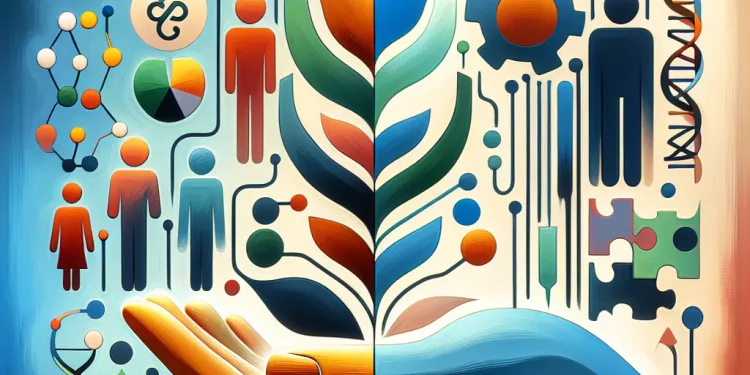
Find Help
More Items From Ergsy search
-

Is paracetamol linked to autism?
Relevance: 100%
-

Why is there concern about paracetamol and autism?
Relevance: 90%
-

Is there any scientific evidence that links paracetamol use to autism?
Relevance: 88%
-

Is there any risk of using paracetamol outside of pregnancy with regard to autism?
Relevance: 86%
-

What can cause autism, if not paracetamol?
Relevance: 80%
-

What are the limitations of studies examining paracetamol use and autism?
Relevance: 60%
-

What is Autism?
Relevance: 55%
-

Is there an autism test?
Relevance: 54%
-

Has paracetamol been linked to other developmental issues besides autism?
Relevance: 54%
-

What is Paracetamol?
Relevance: 54%
-

What is Paracetamol?
Relevance: 54%
-

Is there a genetic component to autism?
Relevance: 52%
-

What is the autism spectrum?
Relevance: 52%
-

How prevalent is autism?
Relevance: 52%
-

What causes autism?
Relevance: 52%
-

Can autism be cured?
Relevance: 52%
-

What are the signs of autism?
Relevance: 52%
-

How is autism diagnosed?
Relevance: 51%
-

Are vaccines linked to autism?
Relevance: 51%
-

Can adults have autism?
Relevance: 50%
-

Is Paracetamol the same as Aspirin?
Relevance: 50%
-

Autism: Graeme's story | NHS
Relevance: 50%
-

Autism - My Story - Rosalind | NHS
Relevance: 50%
-

Autism - My Story - Adrian | NHS
Relevance: 49%
-

Does Paracetamol reduce inflammation?
Relevance: 49%
-

Have any major health organizations advised against using paracetamol during pregnancy due to autism concerns?
Relevance: 49%
-

What is a common use of paracetamol?
Relevance: 49%
-

Is autism more common in boys or girls?
Relevance: 48%
-

What are the side effects of Paracetamol?
Relevance: 48%
-

How does autism affect communication?
Relevance: 48%
-

What are some common therapies for autism?
Relevance: 48%
-

Is it safe to take Paracetamol with Ibuprofen?
Relevance: 47%
-

Can Paracetamol be used in pregnant women?
Relevance: 47%
-

Can people with autism lead independent lives?
Relevance: 47%
-

What is the difference between autism and Asperger's syndrome?
Relevance: 46%
-

Which one is better for headaches: Aspirin or Paracetamol?
Relevance: 45%
-

Autism Assessment - What Happens in Your Appointment
Relevance: 45%
-

What role do sensory issues play in autism?
Relevance: 45%
-

Which one is better for toothache: Ibuprofen or Paracetamol?
Relevance: 45%
-

How can families support a member with autism?
Relevance: 45%
Understanding Paracetamol
Paracetamol, known as acetaminophen in some regions, is a commonly used medication for pain relief and fever reduction. In the UK, it is widely available over the counter and has been considered safe for use during pregnancy when taken as directed. Its accessibility and effectiveness make it a popular choice among consumers.
The Autism Spectrum Disorder (ASD)
Autism Spectrum Disorder (ASD) is a developmental condition characterized by challenges with social skills, repetitive behaviors, and communication difficulties. The exact causes of autism are not fully understood, but it is believed to result from a combination of genetic and environmental factors.
Concerns About Paracetamol and Autism
In recent years, there has been some concern and research regarding the potential link between paracetamol use during pregnancy and an increased risk of autism in children. Some studies have suggested that prolonged exposure to paracetamol during pregnancy might influence fetal development in ways that could contribute to ASD. However, the evidence remains inconclusive.
Scientific Studies and Findings
Research in this area has produced mixed results. Some studies have indicated a possible association between the use of paracetamol during pregnancy and a higher incidence of autism spectrum disorders in children. However, other studies have found no significant link. These discrepancies may stem from differences in study design, the populations studied, and how exposure to paracetamol was measured.
Expert Opinions
Health experts advise caution in interpreting these findings. Many stress that while some studies suggest a possible connection, they do not establish a causal relationship. The Royal College of Obstetricians and Gynaecologists advises pregnant women to use paracetamol for the shortest time at the lowest effective dose and to consult healthcare professionals about medication use during pregnancy.
Conclusion
As of now, there is no definitive evidence that the use of paracetamol during pregnancy causes autism. Pregnant women in the UK are encouraged to follow current medical guidelines and consult their doctors when taking any medication. Further research is needed to fully understand the potential risks and mechanisms involved. It's important for all parties to remain informed as new studies and data emerge.
What is Paracetamol?
Paracetamol is a medicine that helps when you are in pain or have a fever. Some people call it acetaminophen. In the UK, you can buy it in stores without a special note from the doctor. It is safe to use if you are pregnant but only if you take it carefully.
What is Autism?
Autism is a condition that affects how people talk and play with others. People with autism may do the same thing over and over. We don't know exactly what causes autism, but it might be because of both genes and things around us.
Is Paracetamol Safe for Pregnant Women?
Some people worry that using paracetamol when pregnant might affect the baby and link to autism. There have been some studies about this. Some say it might affect the baby's brain. But we still don't know for sure.
What Do Scientists Say?
Scientists are not sure if using paracetamol when pregnant causes autism. Some studies say there is a link, but others do not. This is because the studies were done in different ways and looked at different groups of people.
What Do Experts Recommend?
Experts say we should be careful when reading about these studies. They say there is still no proof that paracetamol causes autism. Pregnant women should only take paracetamol when they really need it and they should talk to their doctor first.
Final Thoughts
Right now, we do not have proof that paracetamol used during pregnancy causes autism. Pregnant women in the UK should listen to their doctors when they take any medicine. We need more studies to understand the risks better. It is important to keep learning as new information comes out.
Frequently Asked Questions
What is paracetamol?
Paracetamol, also known as acetaminophen, is a medication used to treat fever and mild to moderate pain.
Is there any scientific evidence that links paracetamol use to autism?
Current scientific evidence does not conclusively demonstrate a direct link between paracetamol use and autism. Studies have explored possible associations, but findings are not definitive.
Why is there concern about paracetamol and autism?
Some studies have suggested a possible association between prenatal exposure to paracetamol and increased autism risk, leading to concerns. However, other studies have not found a strong connection.
Have any major health organizations advised against using paracetamol during pregnancy due to autism concerns?
No major health organizations, such as the WHO or CDC, have specifically advised against the use of paracetamol during pregnancy based on the potential risk of autism.
What do researchers say about the link between paracetamol and autism?
Researchers acknowledge some studies suggest a link, but emphasize more research is needed to understand any potential connection and the underlying mechanisms.
What should pregnant individuals consider when taking paracetamol?
Pregnant individuals should consult healthcare providers before taking any medication, including paracetamol, to weigh potential risks and benefits.
Are there safer alternatives to paracetamol for pregnant individuals experiencing pain or fever?
Alternatives should be discussed with a healthcare provider. Non-pharmacological methods and some medications may be considered based on individual circumstances.
Has paracetamol been linked to other developmental issues besides autism?
Some studies have examined links between paracetamol and other neurodevelopmental issues, but results are not definitive and warrant further investigation.
What can cause autism, if not paracetamol?
Autism is thought to be caused by a combination of genetic and environmental factors. The exact causes are not fully understood.
Is there any risk of using paracetamol outside of pregnancy with regard to autism?
The concerns about paracetamol and autism primarily relate to prenatal exposure. There is no established link with autism from postnatal use in children.
What is a common use of paracetamol?
Paracetamol is commonly used to reduce fever and alleviate mild to moderate pain from conditions like headaches, period pain, and sore throats.
How can the risks and benefits of medications during pregnancy be assessed?
Healthcare providers can help assess the risks and benefits of medications during pregnancy by considering the severity of the condition being treated and the best available scientific evidence.
What are some general recommendations for medication use during pregnancy?
General recommendations include using medications only when necessary, at the lowest effective dose, and consulting healthcare providers for guidance.
Can lifestyle changes help manage pain and fever during pregnancy?
Yes, lifestyle changes and non-drug methods, such as rest, hydration, and physical therapies, can help manage pain and fever. Discuss options with a healthcare provider.
How prevalent is the use of paracetamol during pregnancy?
Paracetamol is often used by pregnant individuals due to its perceived safety profile for pain and fever management.
What kind of studies are conducted to investigate links between medications and autism?
Researchers conduct epidemiological studies, including cohort and case-control studies, to investigate potential links between medications and autism.
What are the limitations of studies examining paracetamol use and autism?
Limitations include difficulties in isolating medication effects from other variables, differing methodologies, and potential reporting biases.
Have there been any recent changes in guidelines regarding paracetamol use and pregnancy?
Guidelines continue to evolve based on emerging research. It's important to consult the latest guidelines and healthcare providers.
What advice is available for parents concerned about autism risks?
Parents should discuss any concerns with healthcare providers to understand the current evidence and receive advice tailored to their situation.
Where can individuals find reliable information on the safety of medications during pregnancy?
Reliable information can be found through healthcare providers, official health organizations, and reviewed research studies.
What is paracetamol?
Paracetamol is a medicine.
It helps to make pain go away.
If you have a headache or a fever, paracetamol can help you feel better.
Always ask an adult before taking medicine.
If you find reading hard, you can ask someone to read with you.
Paracetamol is a type of medicine. It also has another name: acetaminophen. This medicine helps if you have a fever or if you are in pain.
Does taking paracetamol cause autism?
Some people wonder if taking paracetamol makes children develop autism.
Scientists are studying this to find answers. There is no clear proof that paracetamol causes autism.
It is always good to ask your doctor if you have questions about medicine.
If you find reading hard, you can use tools that read text out loud or help explain words.
Scientists have not found clear proof that taking paracetamol causes autism. Some studies have looked for a connection, but the results are not certain.
If you find this hard to understand, you might try these helpful tools:
- Use a dictionary to look up words you don't know.
- Ask someone to read it with you and talk about it together.
- Try breaking the sentence into smaller parts.
Why do people worry about paracetamol and autism?
Some people are worried that taking paracetamol medicine during pregnancy might cause autism in babies. But scientists are still studying this, and they are not sure yet. If you are worried, talk to a doctor. They can give you the best advice.
To help understand more, you can:
- Ask questions at the doctor's office.
- Use pictures and videos about medicine and autism.
Some studies say that taking paracetamol when a baby is in the tummy might be linked to autism. This makes people worried. But other studies say there is not a strong link.
Do big health groups say not to use paracetamol when pregnant because it might cause autism?
Paracetamol is a medicine. Some people worry it might cause autism if pregnant women take it.
Here are some tips to understand:
- Ask a doctor for advice about medicines when pregnant.
- Read easy information from trusted sources like doctors and health pages.
- Talk to someone you trust about your worries.
Big health groups like the WHO and CDC have not said that pregnant people should stop taking paracetamol because of a risk of autism.
What do scientists say about paracetamol and autism?
Scientists study how things work. They want to know if paracetamol (a type of medicine) and autism are connected.
Autism is when a child's brain works differently. It can make talking or learning hard.
Scientists look at lots of information to see if paracetamol changes how the brain grows.
If you want help reading, you can use a ruler to follow the words. You can also ask a grown-up for help.
Some scientists think there might be a link, but they say we need to do more studies to really understand if there is a connection and how it works.
What do you need to know if you are pregnant and want to take paracetamol?
If you are pregnant, talk to your doctor before taking any medicine, even paracetamol. The doctor can tell you if it is safe and help you decide what is best for you and your baby.
Can pregnant people take something safer than paracetamol for pain or fever?
It is important to talk to a doctor about other choices. There are things you can try without using medicine, but some medicines might help, too. It depends on each person's needs.
Does using paracetamol cause other health problems, not just autism?
Some studies have looked at paracetamol and how it might be linked to other brain development problems. But the results are not clear yet, and scientists need to study more to understand better.
It might help to use tools like text-to-speech software, which can read text out loud, or picture-based aids, which can make things easier to follow.
What causes autism?
Some people wonder if medicine like paracetamol causes autism. But many scientists say paracetamol does not cause autism.
Here are some things that might cause autism:
- Genes: Autism can run in families. If parents have it, children might too.
- Brain differences: Some parts of the brain may grow or work differently.
- Environment: Things around us, like air and food, might play a small part.
If you want to learn more, you can ask a doctor or look at trusted websites. Some people find talking to an expert very helpful. Tools like picture books or videos can make learning about autism easier.
Doctors think autism happens because of genes and things around us. But they don't know exactly why it happens.
Can taking paracetamol when not pregnant cause autism?
Paracetamol is a medicine that helps when you have pain or fever. Some people want to know if it might cause autism. Autism is when the brain works a little differently, and it can be hard to talk or understand others. Scientists are still studying this to be sure.
If you're worried, ask a doctor or pharmacist. They can help you understand better.
If reading is hard, try asking someone to read it out loud to you. You can also use tools that read text on a screen. It's okay to ask for help!
Some people are worried that taking paracetamol when you are pregnant might be linked to autism. But giving paracetamol to children after they are born does not have this link.
What is paracetamol used for?
Paracetamol is a medicine. It helps lower a fever. It also helps if you have mild to moderate pain. You can use it for things like headaches, period pain, and sore throats.
How can we check if medicines are safe to use when you are pregnant?
Doctors and nurses can help you understand if taking medicine is safe when you are pregnant. They look at how serious your health problem is and use the best science information to make sure it's safe for you and the baby.
What should you know about taking medicine when you are pregnant?
Here are some simple tips for taking medicine if you have a baby growing inside you:
- Always ask your doctor before taking any medicine.
- Read the label on the medicine bottle.
- Take only the amount your doctor says is safe.
- If you're not sure, talk to your doctor or pharmacist.
- Keep track of all the medicines you take.
If you need help, you can:
- Ask a family member or friend to help you understand.
- Use pictures or drawings to help remember.
- Ask your doctor for a simple list of things you can and cannot take.
It is important to take medicine only when you really need it. Use the smallest amount that works for you. Always talk to your doctor or nurse if you need help or have questions.
Can changing how you live help with pain and fever when you are having a baby?
Sometimes, changing what you do every day can help when you feel pain or have a fever and you are going to have a baby. Here are some simple things you can try:
- Rest: Make sure you get lots of sleep. Take naps if you feel tired.
- Drink Water: Drink plenty of water to stay hydrated.
- Eat Well: Eat healthy food like fruits and vegetables.
- Relax: Try to stay calm. You can use deep breathing or listen to relaxing music.
- Stay Cool: If you feel hot, use a fan or wear light clothes.
If you are worried or the pain and fever do not go away, please talk to your doctor. They can help you decide what to do.
Yes, there are ways you can help with pain and fever without medicine. You can try resting, drinking lots of water, and doing some physical exercises. It’s a good idea to talk to a doctor or nurse about what might work best for you.
How common is it for pregnant women to use paracetamol?
Paracetamol is a medicine that helps with pain and fever. Many pregnant women use it when they feel sick. It's important to know how many pregnant women use it and to talk to a doctor before using any medicine.
For more information, you can:
- Ask a doctor or nurse for advice.
- Look for easy-to-read health guides.
- Use apps or websites designed for learning about health.
Paracetamol is a medicine. Pregnant people use it because they think it is safe. It helps with pain and fever.
What studies check if medicine is linked to autism?
Scientists do studies to see if medicine might be linked to autism. They use different tests and tools to find out. Here are some ways they study it:
1. Observing People: They watch many people who take the same medicine and see what happens.
2. Asking Questions: They ask people questions about their medicine and health.
3. Comparing Groups: Scientists compare people who take the medicine with those who don't.
If you want to learn more, you can:
- Use simple books or videos about medicine and autism.
- Ask a teacher, doctor, or parent to help explain.
Researchers do special studies to learn about medicines and autism. They look at groups of people and study them over time. This helps them understand if there is a connection between taking medicines and autism.
If you find it hard to read, you can use tools like audiobooks or text-to-speech apps. These can read the words out loud for you.
What are the limits of studies looking at paracetamol use and autism?
When people study how paracetamol medicine might be linked to autism, there are some things that can make it hard to get clear answers. Here are some reasons why:
- Not enough information: Sometimes, studies don't have a lot of data about how often people take paracetamol.
- Different people: Everyone is different, so results might not be the same for everyone.
- Long time: It can take a long time to see the effects, and not all studies follow people for a long time.
- Other factors: Many things can affect autism, not just medicine. Studies have to try to separate these factors.
To help understand this information better, you can use tools like:
- Visual aids: Look at pictures or charts that show the information in a simple way.
- Ask for help: Talk to someone who can explain the information clearly.
Sometimes, it's hard to tell if a medicine is working because other things can make people feel better or worse. Scientists often use different ways to study this, which can make it confusing. Also, people might not say everything about the medicine, which can change how we see its effects.
To help with understanding, you might use pictures or simple charts. Talking with someone about it can also make it clearer.
Are there any new rules about taking paracetamol when you are pregnant?
If you are pregnant and want to take paracetamol, talk to your doctor or nurse.
They can tell you what is safe for you and your baby.
You can also ask if there are any new rules or changes you should know about.
Rules and advice can change when new information is found. Always check with your doctor or nurse for the most up-to-date advice.
What can parents do if they are worried about autism?
If you are a parent worried about autism, here are some steps you can take:
- Talk to a doctor or nurse. They can help and give you advice.
- Watch how your child plays and talks. Write down anything that worries you.
- Read books or look online for more information about autism.
- Join a group for parents. You can share stories and tips.
Also, here are some tools that can help:
- Apps that help children learn and play.
- Pictures or drawings to help explain things to your child.
Remember, it is okay to ask for help. Many people are there to support you and your child.
Talk to your doctor or nurse if you have worries. They can give you information and advice that fits your needs.
How can people find good information about medicine safety when having a baby?
- If you are having a baby, you might need to take medicine. - It's important to know which medicines are safe. - You can ask your doctor. They can help you. - You can also visit trusted websites. - Look for sites that end with .gov or are health websites. - A pharmacist at the drugstore can also help you. - Remember, it is good to ask questions if you are not sure.You can find good information about health in a few places:
1. Talk to your doctor.
2. Visit websites of health groups that you trust.
3. Read studies checked by experts.
If reading is hard, ask someone you trust to help. You can also use apps or tools that read the text out loud.
Useful Links
Have you found an error, or do you have a link or some information you would like to share? Please let us know using the form below.
-->
This website offers general information and is not a substitute for professional advice.
Always seek guidance from qualified professionals.
If you have any medical concerns or need urgent help, contact a healthcare professional or emergency services immediately.
Some of this content was generated with AI assistance. We’ve done our best to keep it accurate, helpful, and human-friendly.
- Ergsy carfully checks the information in the videos we provide here.
- Videos shown by Youtube after a video has completed, have NOT been reviewed by ERGSY.
- To view, click the arrow in centre of video.
- Most of the videos you find here will have subtitles and/or closed captions available.
- You may need to turn these on, and choose your preferred language.
- Go to the video you'd like to watch.
- If closed captions (CC) are available, settings will be visible on the bottom right of the video player.
- To turn on Captions, click settings .
- To turn off Captions, click settings again.
More Items From Ergsy search
-

Is paracetamol linked to autism?
Relevance: 100%
-

Why is there concern about paracetamol and autism?
Relevance: 90%
-

Is there any scientific evidence that links paracetamol use to autism?
Relevance: 88%
-

Is there any risk of using paracetamol outside of pregnancy with regard to autism?
Relevance: 86%
-

What can cause autism, if not paracetamol?
Relevance: 80%
-

What are the limitations of studies examining paracetamol use and autism?
Relevance: 60%
-

What is Autism?
Relevance: 55%
-

Is there an autism test?
Relevance: 54%
-

Has paracetamol been linked to other developmental issues besides autism?
Relevance: 54%
-

What is Paracetamol?
Relevance: 54%
-

What is Paracetamol?
Relevance: 54%
-

Is there a genetic component to autism?
Relevance: 52%
-

What is the autism spectrum?
Relevance: 52%
-

How prevalent is autism?
Relevance: 52%
-

What causes autism?
Relevance: 52%
-

Can autism be cured?
Relevance: 52%
-

What are the signs of autism?
Relevance: 52%
-

How is autism diagnosed?
Relevance: 51%
-

Are vaccines linked to autism?
Relevance: 51%
-

Can adults have autism?
Relevance: 50%
-

Is Paracetamol the same as Aspirin?
Relevance: 50%
-

Autism: Graeme's story | NHS
Relevance: 50%
-

Autism - My Story - Rosalind | NHS
Relevance: 50%
-

Autism - My Story - Adrian | NHS
Relevance: 49%
-

Does Paracetamol reduce inflammation?
Relevance: 49%
-

Have any major health organizations advised against using paracetamol during pregnancy due to autism concerns?
Relevance: 49%
-

What is a common use of paracetamol?
Relevance: 49%
-

Is autism more common in boys or girls?
Relevance: 48%
-

What are the side effects of Paracetamol?
Relevance: 48%
-

How does autism affect communication?
Relevance: 48%
-

What are some common therapies for autism?
Relevance: 48%
-

Is it safe to take Paracetamol with Ibuprofen?
Relevance: 47%
-

Can Paracetamol be used in pregnant women?
Relevance: 47%
-

Can people with autism lead independent lives?
Relevance: 47%
-

What is the difference between autism and Asperger's syndrome?
Relevance: 46%
-

Which one is better for headaches: Aspirin or Paracetamol?
Relevance: 45%
-

Autism Assessment - What Happens in Your Appointment
Relevance: 45%
-

What role do sensory issues play in autism?
Relevance: 45%
-

Which one is better for toothache: Ibuprofen or Paracetamol?
Relevance: 45%
-

How can families support a member with autism?
Relevance: 45%


